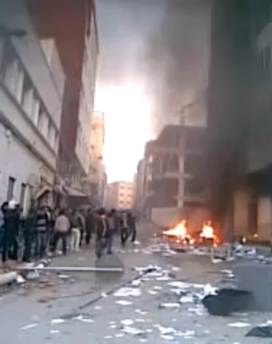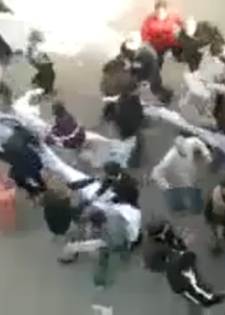|
Morocco Politics | Human rights Morocco does not escape violence
Tens of thousands of Moroccans followed the calls for nation-wide pro-democracy protests yesterday, in mostly peaceful marches demanding reforms to establish a constitutional monarchy. The largest, previously allowed, marches were noted in the capital Rabat and in Morocco's largest city Casablanca.
In northern Morocco, however, the situation got further out of control. In Larache, at the Atlantic coast, protesters also attacked local buildings after being dispersed by police. Here, several persons were wounded during the clashes. In Al-Hoceima, a small city at the Mediterranean coast without any major tourist impact, the heaviest clashes were registered. Few independent details are known, but clashes between protesters and riot police, reportedly using live ammunition, resulted in five deaths and over 100 injured during the night. According to Moroccan authorities, the incidents in Al-Hoceima had been a result of looting criminals. Interior Minister Taieb Cherqaoui today claimed the five deaths came after a group had tried to take advantage of the otherwise "peaceful protests" to rob a bank. They had been killed inside the bank, he added. Minister Cherqaoui admitted there had been violence in the cities of Tangier, Tetouan, Larache, Al-Hoceima, Sefrou, Marrakech and Guelmim, blaming all this on "sabotage acts perpetrated by troublemakers, including minors and ex-convicts." Independent sources from many of those cities mentioned however describe a different reality, claiming protesters had first been attacked by security forces. Anger was building up in these areas, which could become the basis for further spontaneous protests. By staff writers © afrol News - Create an e-mail alert for Morocco news - Create an e-mail alert for Politics news - Create an e-mail alert for Human rights news
On the Afrol News front page now
|
front page
| news
| countries
| archive
| currencies
| news alerts login
| about afrol News
| contact
| advertise
| español
©
afrol News.
Reproducing or buying afrol News' articles.
You can contact us at mail@afrol.com









